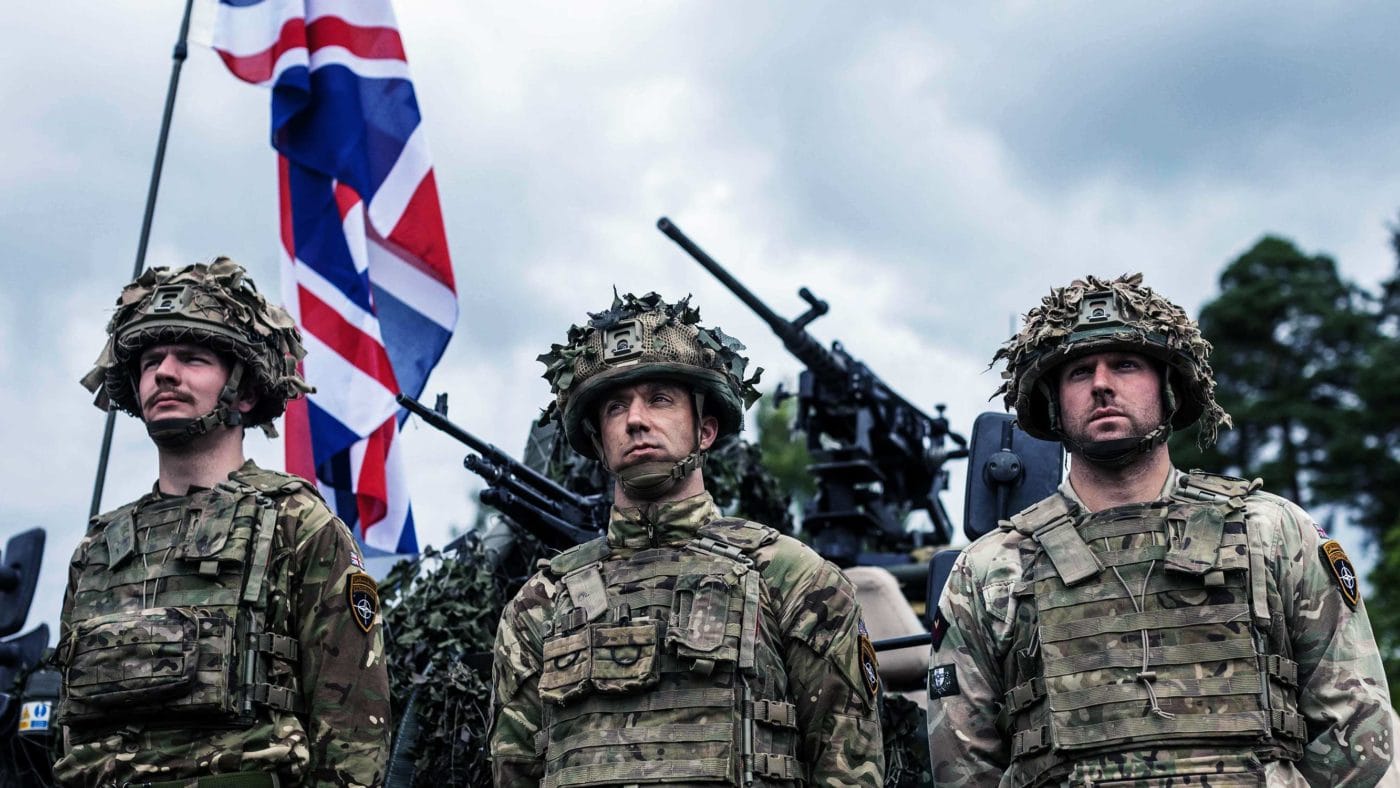War! What is it good for? Thanks to Edwin Starr and a benign natural peacefulness, my instinct is to shout back ‘absolutely nothing!’. But war is all that is on everybody’s mind now.
Abroad, Russia’s hideous invasion of Ukraine rages on, with hundreds dying by the week. And, at home, the Tory party is engaged in its own far less bloody bout of ritual civil war. In world historical terms, the latter is far less important than the former – but where the two cross over should be of interest.
Leadership candidates have various incentives to back big increases in defence spending. Two – Penny Mordaunt and Tom Tugendhat – come from military backgrounds. For those without such a CV, calling for increases in our military budget makes them look tough on defence, bolstering claims to be a statesman (or woman) in training. And since the winner of our ConservativeHome survey for Tory members’ choice for the next leader, Ben Wallace, has dropped out of the contest, going big on defence is (unsurprisingly) a good way to win the Defence Secretary’s support.
However, pushing defence spending to 3% of GDP or more – as some candidates have proposed – would cost at least an extra £20bn. Currently, such a pledge is unaffordable without big spending cuts, tax rises, or potentially inflationary borrowing, since growth remains anaemic. Since most candidates currently seem to be more interested in listing which taxes they would like to cut rather than those they would like to hike, a boost to defence spending looks impractical.
Looking to the future, such a boost might well be strategically necessary, but it could backfire politically in the medium term. When the war in Ukraine began in late February, the working assumption amongst Western commentators was that it would be over quickly. Due to the swift response of Ukraine’s allies (led, of course, by Britain) and the heroic resistance of the Ukrainians themselves, Putin’s plans for a quick war were dashed.
Unfortunately, Ukraine’s early success bred over-confidence. Claims that Putin’s army was crumbling or that Zelensky’s forces could push on to re-take the Donbas or Crimea were belied by the belligerent and bloody new shape of the Russian strategy. Russia is now focused on wearing down the Ukrainian resistance through huge artillery attacks – turning swathes of Ukraine into a modern Somme. More and more of Ukraine is falling to Putin’s forces.
As several commentators have highlighted, for Ukraine to push on for a victory from here would require a huge increase in the Western commitment. We would have to ramp up our production of munitions and other military equipment – an expense and logistical challenge we are ill-prepared for. We would have to court further escalation and potential nuclear conflagration through the provision of all necessary aid short of boots on the ground.
This presents Western policymakers with a clear choice. Double down on costly support to Ukraine in the hope it turns the war in Kyiv’s favour, or prioritise domestic issues. That does not just mean Tory leadership candidates eschewing foreign policy to sling mud at each other, debate which meagre tax cuts to introduce, or have a row about who said what about pronouns when. It means preparing for a potentially very cold and costly winter.
Russia has begun cutting off European countries from supplies in an apparent move to hinder their efforts to fill their gas storage before the winter. Over the past week, Gazprom has cut supplies running through Europe’s major natural gas pipeline, Nord Stream 1, by 60%. This has triggered supply cuts in Italy, Austria, the Czech Republic and Slovakia.
Before the war, Russia supplied 40% of Europe’s gas. Replacing that in the short term in countries such as Germany is highly unlikely, especially as Russia has begun to cut off supplies to hamper efforts to increase gas supplies ahead of the colder winter months. In recent weeks, Gazprom has reduced flows into Europe by over 60%, causing cuts across Italy and Austria, and raising the prospect of rationing in Germany, a country reliant on Russia for over a third of its supply.
Whilst the UK only took 4% of its gas from Russia last year (and has boosted monthly exports to the EU in recent months with exports of gas and oil to the Netherlands and Ireland), we will still be vulnerable to Putin’s pressure and the ensuing rise in global prices. That’s why the energy price cap is expected to breach £3,000 by January 2023 – up from £1,137 four years ago.
What all this means for our next Prime Minister is simple. Whilst it may be a cunning strategy to win support amongst MPs and party members by hailing the importance of boosting Britain’s defences – and it certainly is important, in the longer term, to do so – the next Conservative leader is going to be confronted by a political climate in the autumn and winter where voters are worried less about how many NLAWs we are sending to Kyiv, and more about how to keep their houses warm without taking out a new mortgage.
As such, any funds would-be PMs are mentally allocating to the Ministry of Defence should be held in reserve to add to the £37bn already earmarked to help the public get through the cost-of-living crisis. Whilst we can all sympathise with Ukraine’s plight, prioritising domestic concerns is essential to the next Conservative leader keeping the Labour wolf from the door.
Of course, we could do both – but only by boosting those anaemic growth rates. Candidates should focus on building houses, simplifying taxes, and raising our productivity, rather than posturing over defence.
Click here to subscribe to our daily briefing – the best pieces from CapX and across the web.
CapX depends on the generosity of its readers. If you value what we do, please consider making a donation.


